Arctic sea ice fluctuations can heavily impact fish and shellfish populations from year to year, confirms new study
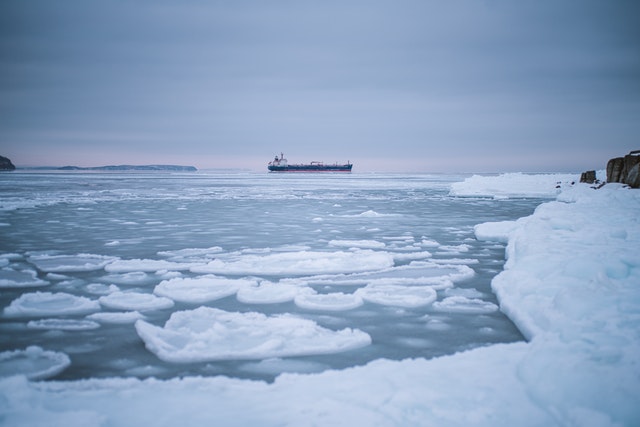
A new study suggests that the freezing and melting of Arctic sea ice in the Bering Sea heavily impacts the marine primary productivity in the area, which is the bottom of the marine food chain.
The Bering Sea is the most productive ground fishery in the world, particularly for salmon, halibut and shellfish. About half of U.S. fish and shellfish come from that area and the fishing industry is the main driver of jobs in the Aleutian Islands. Researchers at the Naval Postgraduate School (NPS) Department of Oceanography looked at how sea ice variability in the Bering Sea over the last several decades might impact the cold pool and marine primary production.
The study, which was sponsored by the U.S. Department of Energy and National Science Foundation and published in PLOS One, examined the very cold water near the sea floor (less than 2 degrees-C) that forms on the shelf each winter, which is called a “cold pool.” It’s formed by the cooling and sinking of surface water. Vertical mixing caused by salt being expelled from water as it freezes into sea ice during the autumn and winter, a process called brine rejection, increases the density of the cold pool water. This cold, salty, dense water sinks down to the bottom, forming its own marine habitat unique from other parts of the Bering Sea by the summer.
Sea ice melt is usually the first cause of water stratification during spring, but when there is not as much sea ice, stratification is mainly caused by the sun warming up surface water later in the year. Stratification is necessary for primary productivity, in the form of phytoplankton, to bloom.
“If there’s a lot of primary production in the water early, then the zooplankton are still very small and they’re not able to consume much of it,” said Jaclyn Kinney, research associate professor at NPS Department of Oceanography. “So those phytoplankton cells will eventually settle out to the bottom, feeding the benthic community.”
But this means the pelagic community doesn’t get as much food, she said. If primary production starts later in the season – which is what happens when there’s less sea ice – it becomes a pelagic-dominated ecosystem because the zooplankton can get bigger. These fluctuations can heavily impact fish and shellfish populations from year to year.
Kinney said that maintaining these habitat distinctions is important for maintaining the food chain for the region. Some marine species that live in the cold pool include the snow crab and Arctic cod.
“It’s really important for food sustainability and for people’s livelihoods,” Kinney said. “The reduction of the cold pool means that we have a whole new potential for a brand-new ecosystem moving in. If we have much warmer water, then we’re going to get these southerly fish species moving north, and that’s going to push the Arctic species even further to the north.”
Follow the Advocate on Twitter @GSA_Advocate
Now that you've reached the end of the article ...
… please consider supporting GSA’s mission to advance responsible seafood practices through education, advocacy and third-party assurances. The Advocate aims to document the evolution of responsible seafood practices and share the expansive knowledge of our vast network of contributors.
By becoming a Global Seafood Alliance member, you’re ensuring that all of the pre-competitive work we do through member benefits, resources and events can continue. Individual membership costs just $50 a year.
Not a GSA member? Join us.
Author
Tagged With
Related Posts
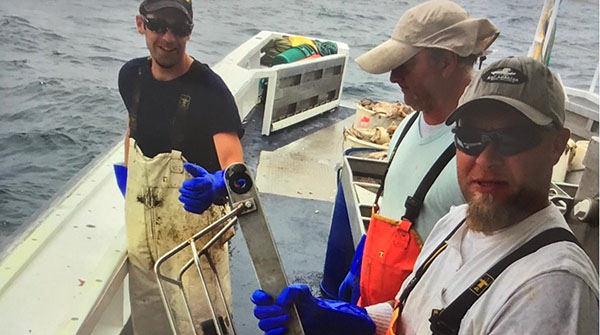
Responsibility
Are mid-depth waters off the United States East Coast getting saltier from ocean warming?
A new study indicates that mid-depth waters off the United States East Coast are getting saltier, possibly due to ocean warming caused by climate change.
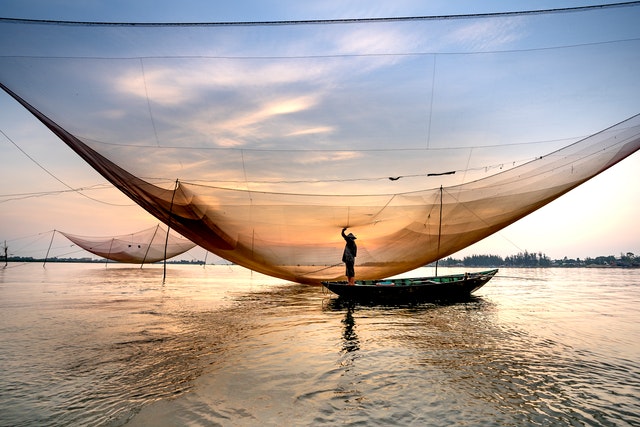
Fisheries
Scientists warn about climate change effects on fisheries and agriculture in tropical coastal communities
A new study is warning about the effects of climate change on fishing and agriculture in tropical coastal communities.
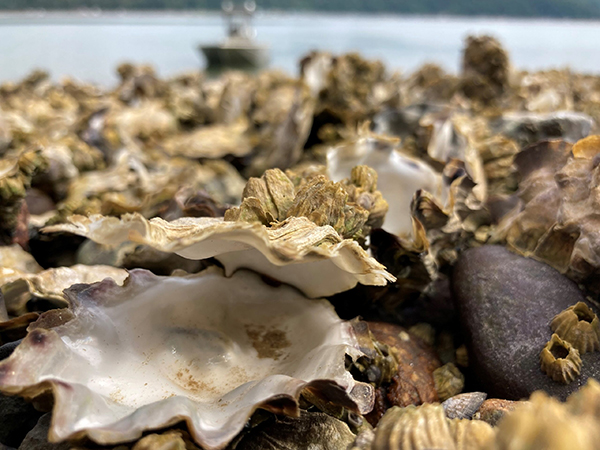
Responsibility
2021 heat wave created ‘perfect storm’ for shellfish die-off
Researchers have produced the first comprehensive report detailing the impacts of the 2021 Pacific Northwest heat wave on shellfish.
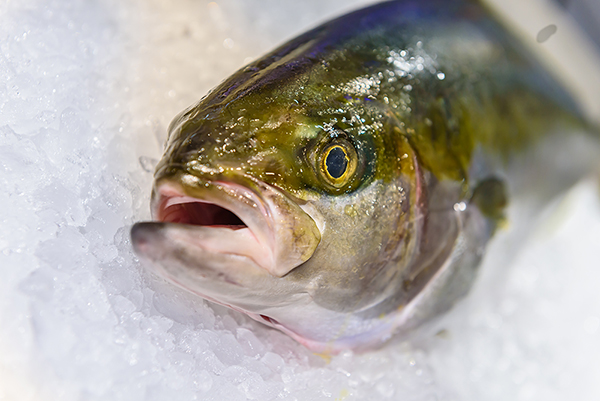
Fisheries
Experts: Climate change is altering fishing industry in North and Baltic seas
Climate change alters the fishing industry and the impact is already being felt, according to experts at fish international.



